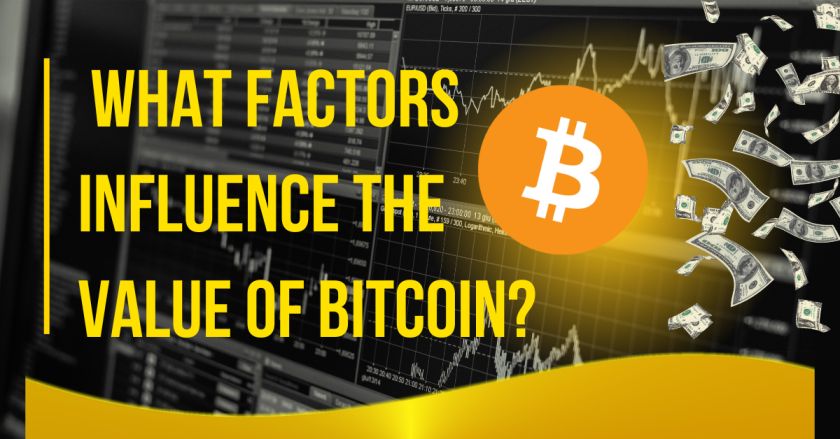There are two preliminary points to make. First, this is stated as a criticism rather than a normatively neutral descriptive statement. It typically appears in the following type of argument, frequently with premises omitted: it is bad to lack intrinsic value. Bitcoin has no inherent value. So bitcoin is a bad thing. Or perhaps it is not worthwhile to invest in things that have no intrinsic value. Bitcoin has no inherent value. As a result, it is not worthwhile to invest in bitcoin.
Second, the term “intrinsic value” has a specific meaning in this context—one that is used in investing. Owning bitcoin is frequently contrasted with owning stock in a company that manufactures a good or service. Stock in a company is said to have intrinsic value because the company produces a good or service and receives money for the good or service. Calculating the intrinsic value of a stock typically involves calculating the value of the company’s assets and/or expected future earnings. Bitcoin is not a company and does not produce goods or services, so it has no intrinsic value. So the criticism goes.
Rather than arguing that bitcoin has intrinsic value or that this use of the term “intrinsic value” is invalid, consider a different way of thinking about intrinsic value that we inherited from Aristotle, Kant, and Mill. This approach to intrinsic value will guide us as we consider what kind of value bitcoin has and what gives it that value.
The intrinsic value of a thing, according to the traditional way of thinking about it, is the value that it has in itself—that is, without reference to anything else. After all, that is what the term “intrinsic” refers to. Extrinsic value is the value a thing has because of its relationship to other things. It’s easy to consider an object’s extrinsic value because you can consider its intrinsic value. A car, for example, has extrinsic value because it gets me from one place to another. Extrinsic value exists because wine tastes good. Money has intrinsic value because it can be used to purchase other items. Extrinsic value is simple to understand. It’s significantly more difficult. Money has extrinsic value because it can be used to purchase other things. Extrinsic value is simple. It is much more difficult to ascertain whether something has intrinsic value.
Perhaps bitcoin lacks intrinsic value in the sense that investors use the term. But, based on this definition of intrinsic value, could it have intrinsic value? And, if not, how does it differ from stocks and precious metals in this regard? We can begin to answer this question by asking: do stocks of companies have intrinsic value in and of themselves, according to this traditional understanding of intrinsic value? No. They are only valuable to the extent that the company and its employees are valuable. Then we can ask: do companies have intrinsic value? Even in this case, the answer is no. They are all valuable because of their relationships to other things, such as money, customers, employees, products, and so on. Let’s take it a step further.Does anything produced by a company have intrinsic value? The possibilities are endless: an iPhone, a watch, an aeroplane, a massage, a tax return, a database, a baseball card.
One way to answer this question is to ask why something is valuable. If you believe there is a reasonable answer to that question, it implies that you believe there is something else for which the original thing is valuable. As a result, you believe the item isn’t intrinsically valuable. For instance, we can inquire as to why an iPhone is valuable. Perhaps one of the reasons an iPhone is valuable is that it connects us to information and loved ones. As a result, it is valuable because it provides something valuable—connection to information and connection to loved ones.It wouldn’t be valuable if it didn’t do that. As a result, it is valuable but not intrinsically valuable. However, even being connected to information and loved ones does not appear to be intrinsically valuable, because we can answer “why is being connected to information good?” with “it gives us knowledge” and “it helps us navigate the world,” and “why is being connected to loved ones good?” with “it makes them happy and it makes me happy.” If those are correct, then being connected to information and loved ones is valuable in the sense that it makes us happy.
Indeed, many proponents believe that happiness is the only thing that has natural value. This is due to a variety of factors. One reason is that if you ask, “Why is happiness so valuable?” It’s difficult, if not impossible, to answer. You might assume that the person who asked didn’t understand what happiness was. “It just is,” you’d be tempted to say. It’s valuable for its own sake.” Another reason is that “It makes me happy” is always a good answer to “Why is X valuable?” — and we don’t feel the need to follow up with “why is happiness so valuable?” A third reason is that it appears presumptuous that everything in the world is different — Apple stock, iPhones, bitcoin, etc.
There is, of course, the farther question of what happiness is. That’s much harder to define. Some say pleasure, some say a flourishing life, some say the life of a mind in accord with reason — it varies greatly. There are also people who suppose there are other effects that have natural value fellowship, people, God — there are numerous campaigners. Rather than settle that question then, it’s important to note that neither bitcoin nor any other investment would have natural value on any of these propositions. You can add anything differently you suppose has value independent of everything outside it and is pursued for its own sake, but we ’ll do with the limited compass of happiness.
So, happiness and perhaps some other effects have natural value, and everything differently is pursued to the extent that it brings happiness either directly or laterally. Bitcoin, also, isn’t naturally precious. But that does n’t mean it’s not precious. In fact, bitcoin shares these features with every concrete material object, and numerous immaterial effects as well — if the below is correct, everything except happiness. So it’s no review of bitcoin to say that it does n’t have natural value, since only happiness does.
But is bitcoin precious? That’s a different question than whether bitcoin is naturally precious, but it’s a no less important one. However, also given that it’s not naturally precious, it’s precious in relation to other effects, If bitcoin is precious. In particular, it’s precious in virtue of its relation to happiness. So, does bitcoin bring people happiness, whether directly or laterally?
To find out, consider why people buy bitcoin. Some people buy it because their primary currency is rapidly depreciating, necessitating access to other stores of value, but they already have access to bitcoin. Some people purchase bitcoin because their original government censors their transactions and they are unable to purchase the effects they desire using their original currency. Some people buy bitcoin because they want to pay for things digitally but are suspicious of PayPal, Visa, and other large pots and do not want to give those companies their financial information. Some people buy it because they believe it will be valuable to others and that they will be able to sell it for more edict currency than they paid for it. For all of these people, if you ask them why they’re swapping other effects for bitcoin, these people are likely to give a series of answers that ends with saying that they suppose that having bitcoin is more likely to make them happy than having the other effects. And these people number in the millions.
Another way to consider Bitcoin’s value is as a network effect. A network effect occurs when the value of a product or service rises in proportion to the number of people who use it. This is due to the fact that the greater the number of people who use a product or service, the more valuable it becomes to each individual user.
The network effect is especially strong in the case of Bitcoin. This is because the value of the Bitcoin network rises as more people use it, incentivizing even more people to do so. This creates a virtuous cycle in which the network’s value increases as more people use it, which leads to even more people using it.
The number of active users and the amount of transaction volume on the network are two ways to gauge the strength of the network effect for Bitcoin. It can be argued that as the number of active users and transaction volume on the network grows, so does the network’s value.
The fact that Bitcoin is an open-source project also contributes to the network effect. This means that anyone can contribute to the network’s development and improvement. As more people contribute to the network’s development, the network’s value rises, incentivizing even more people to contribute. The intrinsic value of a thing, according to the traditional way of thinking about it, is the value that it has in itself that is, without reference to anything else. Extrinsic value is the value a thing has because of its relationship to other things. This is because the value of the Bitcoin network rises as more people use it.

Naren is a finance graduate who is passionate about cryptocurrency and blockchain technology. He demonstrates his expertise in these subjects by writing for cryptoetf.in. Thanks to his finance background, he is able to write effectively about cryptocurrency.
